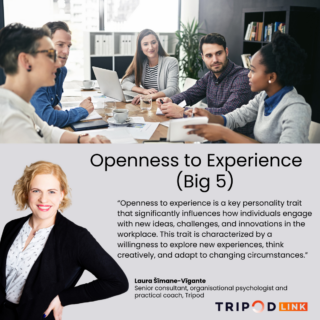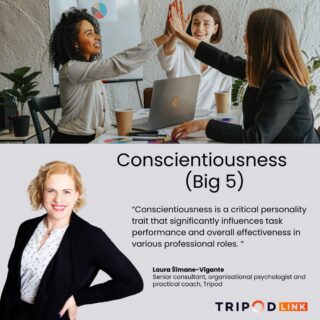
The result of any recruitment process could be a long-term and high-quality employment relationship, where the wishes and expectations of both the employer and the employee are fulfilled. A thorough and well-thought-out recruitment and evaluation process will help to achieve this.
To enhance the work of HR specialists and managers, Tripod conducts various psychological tests and gives them science-based interpretations. Thus, the probability of finding a suitable employee and staying in his organization is significantly higher than in the case of a candidate selected solely on the basis of an interview.
What are mental capacity tests?
Mental capacity tests are designed to determine the cognitive abilities of a job applicant. Tests measure mental capacity through abstract tasks that may not resemble tasks that a person will solve in a future position. Thus, the test does not measure the candidate’s competence to solve specific work-related tasks, but more generally their speed and insight in processing information – this also reflects their ability to learn, which in turn is most strongly related to the success of work performance in work that requires mental effort.
The preparation of such tests requires an in-depth knowledge of psychometry and psychological theories. The preparation of tests begins with the creation of tasks, after which a pilot study is carried out, and then the test is rationed. The period of development of one test is 1-3 years. This is a demanding, long and costly process, therefore, as a rule, high-quality tests are not found on the Internet for free.
Who are the mental fitness tests for?
Mental capacity tests are designed as an auxiliary tool for a recruiter whose task is to find out the best possible candidate. However, for all positions, mental capacity testing is not necessary. If the performance of the work primarily requires practical professional skills (for example, a car mechanic, hairdresser) or very good communication skills (customer service), the mental capacity test may not be used. Mental capacity affects performance in more intellectually demanding and analytical jobs or roles that require constant learning, processing and analyzing large amounts of information, making complex decisions, etc. Therefore, mental capacity is recommended for most specialist and managerial roles in the tests.
As a rule, a test of general capabilities is enough to test mental abilities. The exception is the IT sphere, especially programming, where spatial thinking is the most important prerequisite for acquiring skills. Thus, only a spatial capability test can be used to evaluate candidates for the IT field.
How accurately is it possible to test a candidate’s mental capacity?
Studies carried out over more than a hundred years have shown that of all the assessment tools, a person’s performance can be “predicted” by a mental capacity test. The more complex and demanding the work is in the spiritual sense, the more confidently it can be argued that a person with higher abilities will cope with this work better. In addition, based on the results of the test, it can be assumed how much time a person needs to settle into work and acquire new skills, i.e. how long he may need the support and guidance of colleagues.
Trpod mental capacity tests fall into two categories:
- mental capacity test for specialists – describes verbal, numerical, spatial and general capabilities;
- mental capacity test for managers – measures numerical-logical thinking.
There is no good alternative to the test for assessing mental capacity – neither the interview nor the practical task allows it to be measured so accurately. Using a capability test helps reduce hiring errors.
As a rule, we recommend using the mental capacity and personality test together. This makes it possible to assess how a person realizes his abilities – what is his stress tolerance and willingness to communicate, how is working in a team suitable for him, what is his inner motivation and adaptability. Whether the results of the personality or aptitude test are more important depends on what is expected of the person occupying a particular position.
Does the inclusion of mental capacity tests make the recruitment process significantly longer?
Typically, mental capacity tests are used to evaluate final candidates. The test takes 40-45 minutes, and if the test is conducted by Tripod, it takes place online, in front of an open camera.
For the recruiter and the organization, this is a significantly greater time and financial savings compared to hiring a person and realizing during the probationary period that he, however, is not suitable for a given position.
The test can be carried out by an assistant, but the results must be interpreted by a person who has passed test training and acquired a license from a test user.
Where to start when ordering tests?
If you want to include mental fitness tests in the hiring process, here’s some help to start with:
- create a thorough candidate profile, i.e. make it clear what their main tasks will be and what competencies will be important for this;
- After that, you can choose the appropriate assessment tools, with the help of which to assess the necessary competencies, skills or psychological assumptions.
Thoughtful, professional and multi-level testing helps to make the right decisions and employ people who have the necessary prerequisites, willingness to work and development potential.
If you are interested in incorporating psychological tests into the recruitment process of your organization, please find out more here or contact us.







